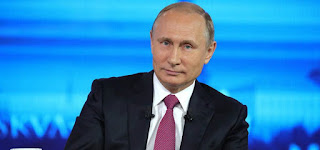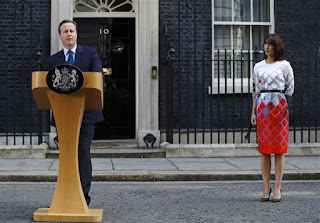Adnan Khashoggi, the Moscow Apartment Bombings and the Rise of Putin
[This is a repost: The entire Khashoggi/9/11 series can be found on
the Net. Parts 1-25 are not posted here, but the latest entries, parts
26 onward, can be found in the archives of my site. - AC]
TWO YEARS before the towers in Manhattan crumbled under the weight of global political corruption, a spate of bombings in Russia left surviving relatives and those injured in the blasts, as CNN reported on September 10, 1999, "searching for answers
At least 90 bodies, including seven children, were dragged from the wreckage of a bombed-out apartment building in Moscow in early September 1999. Russian Prime Minister Vladimir Putin, in a televised speech, suspected terrorism; if so, he said, "we are facing a cunning, impudent, insidious and bloodthirsty opponent."1
CNN reported: "Russian President Boris Yeltsin declared a day of mourning on Monday for the victims of Russia's last three explosions and bombings - the Moscow blast, the bombing of a shopping center near the Kremlin and the September fourth car bomb that demolished another apartment building in Buinaksk, in the southern Russian region of Dagestan"
By the third week of September, the death toll rose to over 200. Chechen forces were behind the bombings, Yeltsin proclaimed, a belief shared by Yuri Luzkhov, the mayor of Moscow. Interior Minister Vladimir Rushailo oversaw the investigation and announced that the Russian government "will consider itself within its rights to use all resources at its disposal to rebuff the aggression."2
The harried Russian proles were quick to accept the government's explanation that Chechens were responsible for the blasts in Moscow and the Caucasus. But the Asia Times editorialized, "it is highly unlikely." And no one stood to benefit by the outbreak of bombing but but, well ... Boris Yeltsin ...In a statement of denial, Chechen leader Shamil Basayev stated, "We had nothing to do with the explosion in Moscow. We never kill civilians. This is not our style."
Provisions anticipating the Patriot Act were proposed. The Duma considered
declaring a state of emergency. Until the bombings, the public had steadfastly opposed such measures, but even Yegor Stroyev, Federation Council speaker (the Council is the upper hall of parliament) had to admit that he'd firmly opposed emergency measures in the past but after the second Moscow explosion, well, there was an obvious "need to consolidate the legal base for combating the rampage of terrorism and crime."3
Viktor Ilyukhin, a Communist leader, dismissed the bombings as provocateur actions: "Political hysteria is being fanned artificially, including by way of explosions to cancel parliamentary and presidential elections through a state of emergency."4 Day by day, the true, sordid details emerged in Versiya, Novaya Gazeta and England's Independent to erode Yeltsin's credibility. It developed that there was more to the bomb plot than the government had revealed that its true
origins lay not in the Russian satellites ... but in a meeting of conspirators held at the flat of ADNAN KHASHOGGI.
"It is clear that apartment explosions in Moscow would not have happened if
somebody in the Russian political elite did not want them," Novaya Gazeta
opined on January 24, 2000. "One by one, pieces of puzzle were put together.
TWO YEARS before the towers in Manhattan crumbled under the weight of global political corruption, a spate of bombings in Russia left surviving relatives and those injured in the blasts, as CNN reported on September 10, 1999, "searching for answers
At least 90 bodies, including seven children, were dragged from the wreckage of a bombed-out apartment building in Moscow in early September 1999. Russian Prime Minister Vladimir Putin, in a televised speech, suspected terrorism; if so, he said, "we are facing a cunning, impudent, insidious and bloodthirsty opponent."1
CNN reported: "Russian President Boris Yeltsin declared a day of mourning on Monday for the victims of Russia's last three explosions and bombings - the Moscow blast, the bombing of a shopping center near the Kremlin and the September fourth car bomb that demolished another apartment building in Buinaksk, in the southern Russian region of Dagestan"
By the third week of September, the death toll rose to over 200. Chechen forces were behind the bombings, Yeltsin proclaimed, a belief shared by Yuri Luzkhov, the mayor of Moscow. Interior Minister Vladimir Rushailo oversaw the investigation and announced that the Russian government "will consider itself within its rights to use all resources at its disposal to rebuff the aggression."2
The harried Russian proles were quick to accept the government's explanation that Chechens were responsible for the blasts in Moscow and the Caucasus. But the Asia Times editorialized, "it is highly unlikely." And no one stood to benefit by the outbreak of bombing but but, well ... Boris Yeltsin ...In a statement of denial, Chechen leader Shamil Basayev stated, "We had nothing to do with the explosion in Moscow. We never kill civilians. This is not our style."
Provisions anticipating the Patriot Act were proposed. The Duma considered
declaring a state of emergency. Until the bombings, the public had steadfastly opposed such measures, but even Yegor Stroyev, Federation Council speaker (the Council is the upper hall of parliament) had to admit that he'd firmly opposed emergency measures in the past but after the second Moscow explosion, well, there was an obvious "need to consolidate the legal base for combating the rampage of terrorism and crime."3
Viktor Ilyukhin, a Communist leader, dismissed the bombings as provocateur actions: "Political hysteria is being fanned artificially, including by way of explosions to cancel parliamentary and presidential elections through a state of emergency."4 Day by day, the true, sordid details emerged in Versiya, Novaya Gazeta and England's Independent to erode Yeltsin's credibility. It developed that there was more to the bomb plot than the government had revealed that its true
origins lay not in the Russian satellites ... but in a meeting of conspirators held at the flat of ADNAN KHASHOGGI.
"It is clear that apartment explosions in Moscow would not have happened if
somebody in the Russian political elite did not want them," Novaya Gazeta
opined on January 24, 2000. "One by one, pieces of puzzle were put together.



Comments
Post a Comment